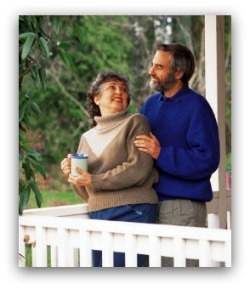 In my therapy practice, I often hear married couples say, “We’ve fallen out of love” or “I’m not sure I love her/him anymore.” These statements are made with great sadness and a clear sense of hopelessness. The couples, who feel that the romantic love is gone from their relationships, begin to doubt the value of their marriages and question their choice of partners. This sense of doubt is strengthened by the messages society sends about our partner being our soul mate, “other half” or someone who completes us.
In my therapy practice, I often hear married couples say, “We’ve fallen out of love” or “I’m not sure I love her/him anymore.” These statements are made with great sadness and a clear sense of hopelessness. The couples, who feel that the romantic love is gone from their relationships, begin to doubt the value of their marriages and question their choice of partners. This sense of doubt is strengthened by the messages society sends about our partner being our soul mate, “other half” or someone who completes us.
In reality, it is normal to experience different feelings for our partners as a marriage progresses. Feelings of caring can seem to fade; at times we may dislike or even hate someone we love. Although these feelings are upsetting and confusing, they are completely normal. In order to better understand them, it helps to clarify the definition of love. In spite of the impression conveyed by Hollywood and fairytales, love is not a feeling. “Falling in love” is not love, nor is needing someone or having someone need you. Love is not sacrificing yourself, being a martyr for someone else, always doing things for others or spending money on others.
What is love, then? Love is caring deeply about another person’s growth. According to M. Scott Peck, M.D., love is “the will to extend one’s self for the purpose of nurturing one’s own or another’s spiritual growth.” Love is an action you take – something that you do- to nurture yourself or someone else. When a person is treated lovingly, they feel validated and cared for. Love grows from this nurturance. People do not grow when they are criticized, blamed or shamed. They grow when they are loved.
When we think about what it means to love our spouse, it helps to consider another question. How do we love someone? We love them through our actions: doing something with the purpose of nurturing his or her growth. The action might be temporarily putting aside the things that occupy us and focusing completely on our spouse so they feel attended to. The action might be to truly listen when they speak; hear their words, look at them, and respect their view, even when it differs from your own. The action might be spending time together, whether you are doing something your spouse enjoys or something you both enjoy. The action might simply be spending quiet time together while feeling connected, such as taking a walk, cuddling, sitting on a park bench next to one another, or spending time in spiritual worship.
In couples groups and private sessions, we teach partners a new way to act with love using the Imago dialogue. During the dialogue, each partner has time to talk while the other partner simply listens. The listener then confirms what she/he heard and offers a statement of understanding. The Imago dialogue is a form of love as a willful action. Its purpose is to nurture one another by attending to them lovingly.
Loving our spouse helps him/her grow toward the best they can be. As they grow, they are more likely to love us back in this same way. Love is action. Ultimately, the action of loving our spouse brings growth, intimacy and joy for both partners.
To schedule an appointment to learn more about how feeling gratitude for your partner can greatly improve your relationship, call 908-246-3074 or email mkeller@couplestherapycenterofnj.com
<

